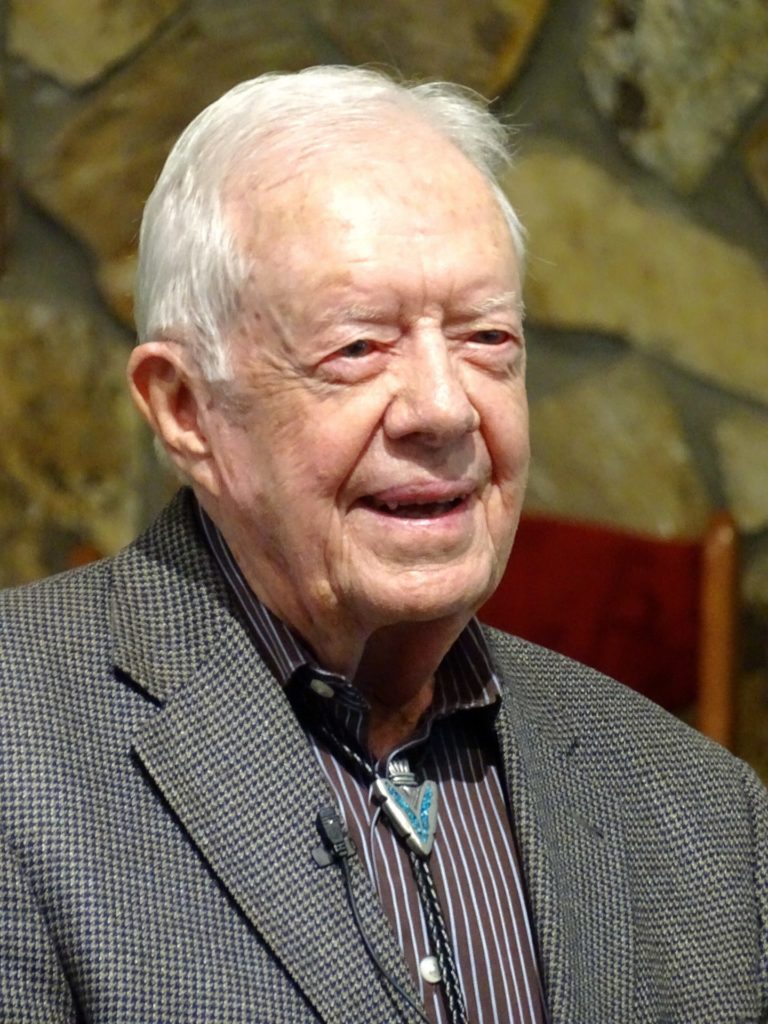We become not a melting pot but a beautiful mosaic. Different people, different beliefs, different yearnings, different hopes, different dreams. —Jimmy Carter
“Enough is enough! I’m writing the President!”
After hitting the umpteenth brick wall, my wife had reached the end of her rope. As a Canadian citizen in America, married to an American, obtaining a green card for work should have been a walk in the park for her. But it wasn’t. After three years of red tape, misinformation, misfiled forms, mistakes and miscues on the part of the federal government, she fired off an indignant letter to President Jimmy Carter. “Don’t you want me?” the letter cried. “I’m a teacher, I’m a good person, I help people. Does your country have anything against teachers, good people and helpers?”
We mailed the letter that night to “President Jimmy Carter in care of The White House, Washington, DC.” Less than a week later a package arrived on our doorstep—her approved application.
“Wow,” exclaimed the official reviewing the application forms, each of them covered with federal stars and rubber-stamped URGENT. “Someone at the top is really interested in you!”
Jimmy Carter is now about to embark on a journey of his own, entering hospice for end-of-life care. He leaves behind a legacy of kindness, tolerance and peace and will likely be remembered first as a person of faith who lived that faith, secondly as a crusader for human rights and religious freedom, and incidentally as someone who happened to be president of the United States.
His quick response to my wife’s letter was symptomatic of the kind of person he was: inclusive. Though raised in the deep South to committed segregationist parents, it was not in Carter’s makeup to exclude anyone. As a child he made friends with his family’s black neighbor children in the poor community where he lived. Later, on becoming Georgia’s governor, succeeding arch-bigot Lester Maddox (the New York Times described Maddox as believing “that blacks were intellectually inferior to whites, that integration was a Communist plot, that segregation was somewhere justified in scripture and that a federal mandate to integrate [all-white] schools was ‘ungodly, un-Christian and un-American.’”) he stunned the inauguration crowd when he declared, “I say to you quite frankly that the time for racial discrimination is over…No poor, rural, weak, or black person should ever have to bear the additional burden of being deprived of the opportunity of an education, a job or simple justice.”
As president he strove for peace, meeting all challenges, as he said, “without launching a missile or dropping a bomb. My commitment to peace was an aspect of my Christian faith. Also, basic human rights are obviously compatible with the teachings of Jesus Christ, and I made human rights a foundation of foreign policy.”
He made human rights a foundation of his life and work as well, founding the nonprofit, non-governmental Carter Center in 1982, an organization committed to advancing human rights and easing human suffering. It has helped to improve life for people in more than 80 countries by resolving conflicts and advancing democracy and human rights. For his work on equality and inclusion, Carter was awarded the Nobel Peace Prize in 2002 “for his decades of untiring effort to find peaceful solutions to international conflicts, to advance democracy and human rights, and to promote economic and social development.”
Jimmy Carter tried as best as he could to be the best Christian he could be, setting examples of love and peace while finding commonalities and joining hands with other faiths. “The finest teachings of Mohammed, Hinduism, Buddhism, Judaism, Christianity, Protestantism, or Catholicism are compatible where they advocate peace and sharing one’s good fortune with those less fortunate,” he said. “As a Christian, I don’t equate other religions with the impact or influence or supremacy or the Godship of Jesus Christ. Other believers promote similar beliefs in secular life. Our own individual Christian beliefs and the finest beliefs of Islam and Buddhism and Hinduism should be implemented in the promotion of peace, alleviation of suffering, and justice.”
With Carter, what you saw is what you got, and that was invariably a simple, loving soul doing as much as he could for others. As his close friend Bob Dylan observed, “It’s impossible to define Jimmy. I think of him as a simple kind of man. Like in the Lynyrd Skynyrd song: ‘He takes his time, doesn’t live too fast. Troubles come, but they will pass. Find a woman and find love. And don’t forget there’s always someone above.’”
Up until recently, Carter continued to regularly teach Sunday school at the Plains, Georgia Maranatha Baptist Church, earning him the title of “America’s most famous Sunday school teacher.”
At this writing, Jimmy Carter is still with us. I can’t say that he touched our personal lives any more or less than he has touched so many others. But I have no doubt that one day when he’s ready to take his leave of us, the gatekeeper up there in Heaven will certainly greet him, as that immigration official greeted my wife that day so very long ago: “Wow! Someone at the top is really interested in you!”

